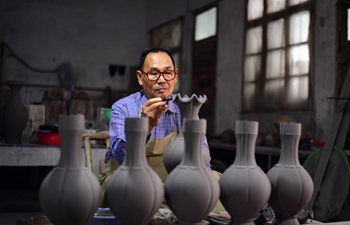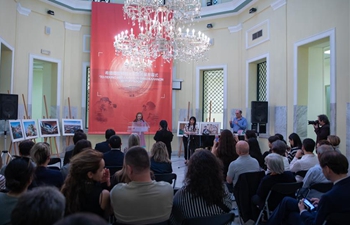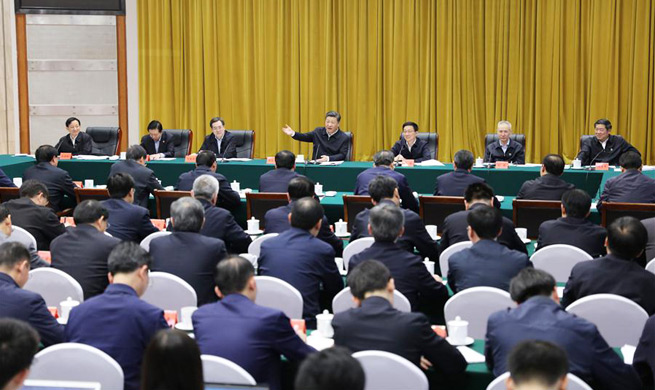SHANGHAI/BEIJING, April 26 (Xinhua) -- A brand can take years to build, but days to be copied. Global winemaker Chateau Lafite found itself in such an infringement in 2015.
The company discovered then that a Shanghai-based firm had been importing and selling wine labeled "Chateau Moron Lafitte," similar to its registered trademark "Lafite."
It appealed to a Shanghai IP court, a specialized court for handling IPR cases set up in Beijing, Shanghai and Guangzhou in 2014.
In February, the court judged that the Shanghai company should stop the trademark infringement and compensate Chateau Lafite 2 million yuan (around 317,000 U.S. dollars).
"We are glad to see China is working to set up a great IP system and to equally protect rights of brands from China and abroad," said Jean-Guillaume Prats, CEO of Les Domaines Barons de Rothschild (Chateau Lafite), at a recent meeting.
From 2014 to 2017, Shanghai courts received 1,244 and concluded 1,219 civil first instance IP cases involving foreign parties, accounting for 3.3 percent of total received civil IP cases.
Yang Jing, deputy director of the administration office of Beijing IP Court, said: "IPR trials create fair market competition for both Chinese and foreign companies."
In 2017, Chinese courts concluded more than 200,000 IPR cases, increasing 40 percent year on year, according to the Supreme People's Court of China.
"China is increasingly using legal tools to help stimulate innovation," said Yang Boyong, chief judge of a tribunal in Beijing Higher People's Court.
In recent years, compensation for IPR violation has been set to match the market value of the IP, sometimes breaking the statutory upper limit provided in related laws, according to Yang.
"Violators should pay the price they deserve," he said.
In a series of typical IPR cases the Beijing court announced last week, two tech companies violating a software patent were required to compensate 3 million yuan, higher than the 1 million compensation cap provided by China's patent law.
The court passed its judgement based on the fact that the profit the two companies made from illegally using the software had far exceeded one million yuan.
In another case involving German software corporation SAP SE, handled by the Shanghai IP court, the judge decided that a Chinese training agency have used SAP SE software and textbook for commercial purposes without authorization.
The compensation was set at 1.55 million yuan, higher than 500,000 yuan, the statutory upper limit of compensation provided in copyright law.
"We are very impressed with the Shanghai IP Court's unbiased respect for a multinational company's IPR, as well as the determination to protect IPR in China." said Karen Williams, vice president of SAP's anti-piracy department, in a letter of gratitude to the court.
Lawmakers in China are modifying IPR protection laws to raise the compensation cap.
"The state intellectual property office will actively push to raise the compensation limit, and introduce penalties to significantly raise the violation cost," said Shen Changyu, chief of the office.

















